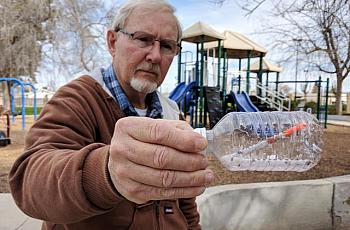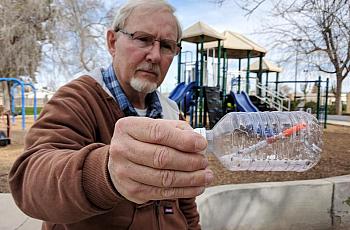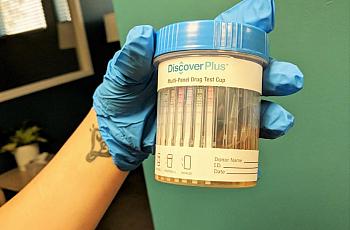
Kerry Klein
Reporter

Reporter
Kerry Klein is a health reporter for Valley Public Radio, covering air quality, drinking water, public health and other topics in California’s San Joaquin Valley. She studied science communication at UC Santa Cruz following an undergraduate degree in geology from McGill University. In addition to her work for KVPR, she’s written print and radio pieces for KQED, NPR, the San Jose Mercury News, and The Atlantic. Her radio work has earned her a 2017 first-place health policy award from the Association of Health Care Journalists, and four “Golden Mike” awards from the Radio and Television News Association of Southern California. She was a California Fellow with the Center for Health Journalism in 2016.
For her 2018 Data Journalism Fellowship project, Kerry plans to explore trends in opioid use and access to treatment within the San Joaquin Valley, from some of the smallest communities to the biggest industries in the region.

A reporter shares a handful of investigative reporting techniques that proved essential in overcoming blind spots among local health experts who were largely unaware of opioids' toll in their communities.

This story was produced as part of a larger project led by Kerry Klein, a participant in the USC Center for Health Journalism's 2018 Data Fellowship....

Despite the chokehold heroin and pain pills have had on public health for years, Bakersfield cops are dealing with far more than opioids.

This story is part of a series called In Recovery, about opioid addiction and treatment in the San Joaquin Valley.

This story was produced as part of a larger project led by Kerry Klein, a participant in the USC Center for Health Journalism's 2018 Data Fellowship.
Other stories in this series include:
It Used To Be Kern County's Opioid Epicenter, But Oildale May Be Cleaning Up

The Central Valley's Kern County reported a 30 percent rise in overdose deaths from 2016 to 2017, bucking the statewide decline in fatal overdoses.

Research suggests an alarming link between a common drug used for valley fever and birth defects. The disease also tends to be more severe in pregnant women.
The antifungal drugs used to treat valley fever can cause hair loss. With the number of valley fever cases on the rise, a wig shop in Bakersfield, Calif., is helping women feel better about themselves.

The budget includes $8 million for research and outreach into the disease, caused by inhaling spores that grow in arid soil.

In the city of Lemoore, a community of 25,000 rising out of arid cropland in California’s San Joaquin Valley, almost everyone has a story about valley fever.